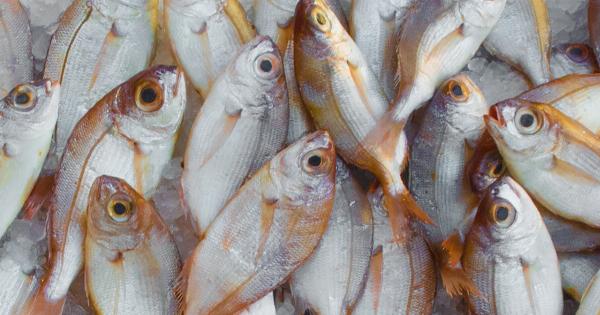Shellfish have been consumed by humans for thousands of years and are an excellent source of protein, vitamins, and minerals. However, there are a lot of myths surrounding the consumption of shellfish.
Some people believe that they are bad for your health, while others think they should be avoided altogether. In this article, we will debunk some of the most common myths about eating shellfish.
Myth 1: Shellfish Are High in Cholesterol
One of the most common myths about shellfish is that they are high in cholesterol. While it is true that shellfish contain cholesterol, they are also low in saturated fat, which means that they are unlikely to raise your cholesterol levels.
In fact, studies have shown that eating shellfish can actually help to reduce your risk of heart disease, as they are rich in omega-3 fatty acids.
Myth 2: You Should Only Eat Shellfish in Months that End with “R”
This myth probably originated as a way to avoid eating shellfish during their breeding season. However, modern aquaculture practices mean that shellfish are available year-round, and it is safe to eat them at any time of the year.
Myth 3: Shellfish are Only for the Rich
While it is true that some types of shellfish can be expensive, there are also many affordable options available. Mussels, clams, and oysters, for example, are all relatively inexpensive and are widely available in many parts of the world.
Myth 4: Shellfish Are Dangerous to Eat
While some people may be allergic to shellfish, for the vast majority of people, they are perfectly safe to eat. However, it is important to ensure that shellfish are cooked properly to avoid the risk of foodborne illness.
Shellfish should be cooked until the internal temperature reaches 145°F, which will kill any harmful bacteria.
Myth 5: Eating Shellfish Can Make You Sick
While it is true that some people may have an allergic reaction to shellfish, for most people, they are perfectly safe to eat.
However, if you do experience any symptoms after eating shellfish, such as nausea, vomiting, or diarrhea, it is important to seek medical attention, as these may be signs of food poisoning.
Myth 6: Shellfish Are Not Sustainable
Shellfish are actually some of the most sustainable forms of seafood available. They are filter feeders, which means that they help to improve water quality by removing excess nutrients from the water.
Additionally, many types of shellfish can be farmed using sustainable practices, which reduces the pressure on wild populations.
Myth 7: You Should Not Eat Raw Shellfish
While it is true that consuming raw shellfish can increase your risk of foodborne illness, it is safe to eat some types of raw shellfish.
Oysters that are served raw on the half-shell, for example, are safe to eat if they are harvested from approved waters and are stored properly.
Myth 8: Shellfish Are Not Nutritious
Shellfish are actually incredibly nutritious. They are an excellent source of protein, vitamins, and minerals, and are particularly rich in vitamin B12 and iron.
Additionally, many types of shellfish are low in calories and are a great addition to a healthy diet.
Myth 9: You Should Avoid Eating Shellfish If You Are Pregnant
While some people may be advised to avoid eating raw shellfish during pregnancy, for the most part, shellfish are considered safe to eat. In fact, they are an excellent source of protein and other nutrients that are important for a healthy pregnancy.
However, if you are concerned about eating shellfish during pregnancy, it is always a good idea to talk to your doctor.
Myth 10: Shellfish Are Difficult to Cook
While some types of shellfish can be tricky to cook, such as lobster or crab, many types are actually very easy to prepare.
Mussels, for example, can be cooked in just a few minutes and are delicious when simmered in wine and garlic or steamed with white wine and herbs.
Conclusion
Shellfish are a nutritious and delicious addition to any diet. While there are some myths surrounding their consumption, for the most part, they are perfectly safe and good for you.
Whether you enjoy them raw on the half-shell or cooked in a delicious seafood stew, there are many ways to enjoy the many benefits of shellfish.































